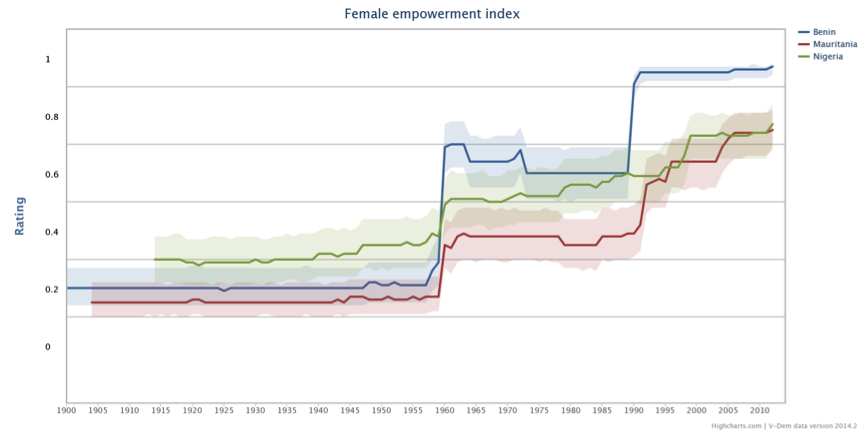Political empowerment
By: V-Dem Staff
Apr 14, 2015
In most West African countries, constitutional law prohibits discrimination on the ground of gender, however customary and religious laws still continue to hinder women’s rights. Policies that encourage the full participation of women in the social and economic life of their countries have been adopted in some West African government but even so most women remain bound to their traditional roles. This is most prevalent in the rural areas.
The graph below, uses the female empowerment index, and shows that in Benin, Mauritania and Nigeria, female empowerment has improved over time, starting in the 1960s although with periods where progress plateaus. The progress of the three countries follows a similar pattern, however Benin experiences a sharp surge in female empowerment in the 1990s.
The female empowerment index consists of the following indicators: CSO women’s participation, percentage of female journalists, freedom of domestic movement for women, freedom of discussion for women, freedom from forced labor for women, property rights for women access to justice for women and power distributed by gender. These can be individually charted using the V-DEM online Graphing tool.


